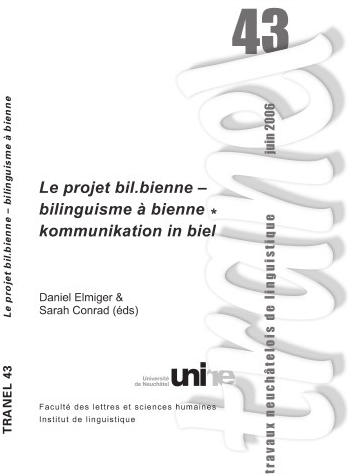Devenir bilingue à Bienne
DOI :
https://doi.org/10.26034/tranel.2006.2718Résumé
The consultants’ accounts allow for an autobiographic perspective of their plurilingualism, which thus brings some answers to the following question: where and how did you become bilingual? These answers are not only interesting on an ethnographic point of view, but on a theoretical and practical point of view too. The social and cultural backgrounds are indeed central to the learning theories we accept as valid. Moreover, one of the practical questions the school has to face is related to out-of-school learning, which teaching has to take into account. As it is, any French or German teacher working in Bienne should take into consideration the knowledge gained within the family, with friends, while practicing a sport, etc. Furthermore, it is interesting to assess the role played by the school in the adults’ plurilinguism.
Access to this kind of information poses methodological problems that must inevitably be taken into account. The vision that learners have of their experience does not always match “reality”. Thus, we have studied with caution the transcription extracts, chosen on the basis of their particular significance.


